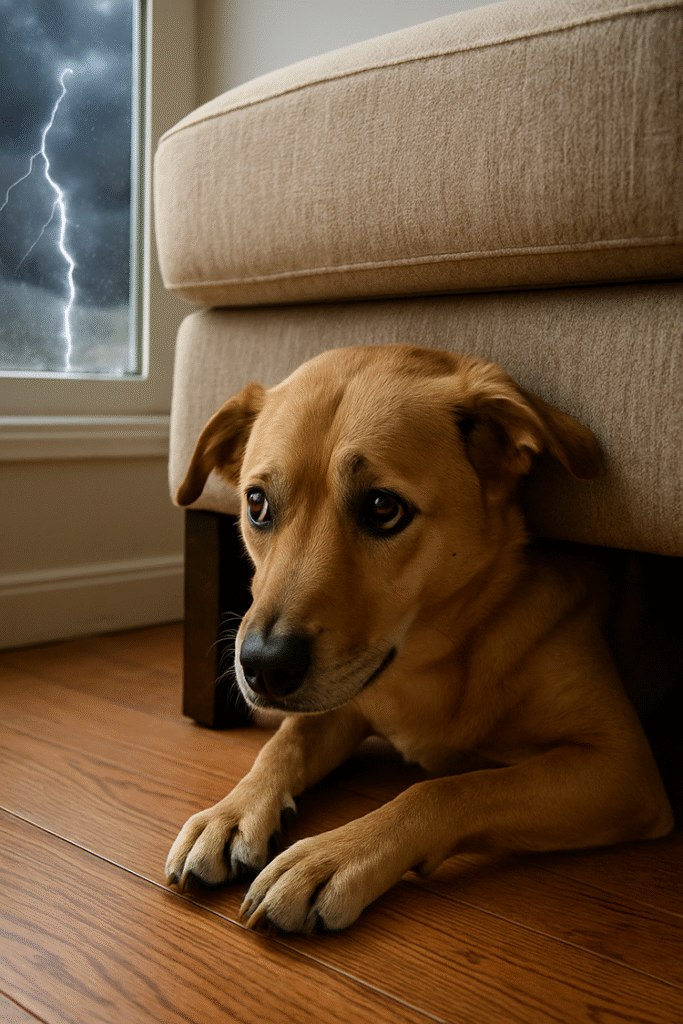
🐶 Full Article: How to Help Your Dog Overcome Fear of Loud Noises
Thunderstorms, fireworks, vacuum cleaners — for many dogs, loud noises are terrifying. Some shake, hide, bark nonstop, or even try to escape.
Helping your dog cope with noise phobia takes understanding, patience, and the right tools.
⚠️ Signs of Noise Anxiety
- Trembling or shaking
- Hiding or seeking shelter
- Whining, barking, or howling
- Panting or drooling
- Pacing or restlessness
- Destructive behavior (chewing doors, escaping)
✅ 7 Ways to Help Your Dog Stay Calm
1. Create a Safe Space
Set up a quiet area like a crate with a blanket cover, a bathroom, or a closet. Add their favorite bed, toys, and calming smells.
2. Use White Noise or Calming Music
Soft background noise helps mask external sounds. Try dog-calming playlists on YouTube or Spotify.
3. Try Anxiety Wraps or Weighted Vests
Products like the Thundershirt gently apply pressure to calm nerves. Many dogs respond very well to this.
4. Desensitize Gradually
Play low-volume recordings of fireworks or thunder while feeding or playing. Increase volume over days/weeks, always pairing it with positive experiences.
5. Use Calming Scents or Diffusers
Lavender, chamomile, or dog-specific pheromone diffusers (like Adaptil) can ease stress naturally.
6. Don’t Reinforce Panic
Stay calm yourself. Avoid excessive babying or petting when they panic — this can unintentionally reward fearful behavior.
7. Speak with Your Vet
For severe cases, your vet may recommend natural supplements or short-term medication during events like fireworks nights or storms.
🚫 What NOT to Do
- Yell or scold them for reacting
- Leave them alone during known events
- Force them into fearful situations
- Assume they’ll “get over it” on their own
❤️ Final Thoughts
Noise anxiety is very real — and for some dogs, it’s deeply distressing. But with the right approach, you can teach your dog that loud sounds are nothing to fear.
Your calm presence, a safe space, and positive training go a long way in building their confidence.
